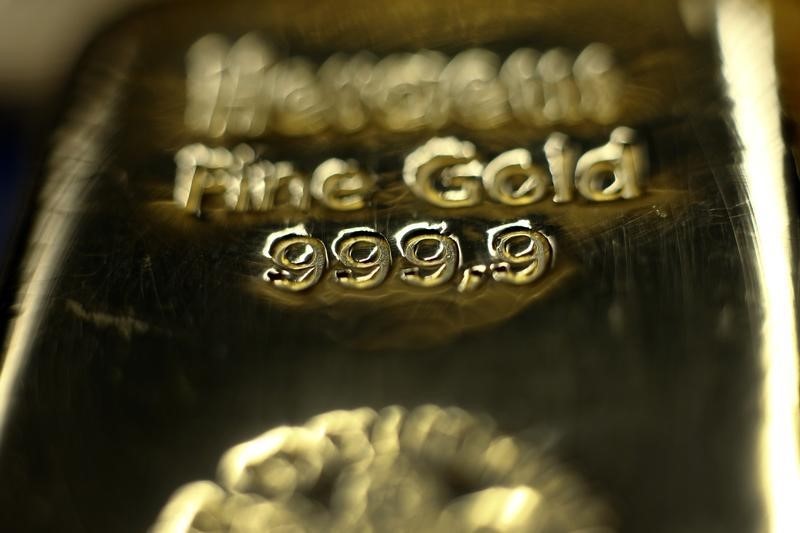Investing.com - Gold swung between small gains and losses on Monday, as traders reassessed their expectations for the timing of the first U.S. rate hike and amid growing concerns over Greece's future in the euro zone.
On the Comex division of the New York Mercantile Exchange, gold futures for April delivery inched up 40 cents, or 0.03%, to trade at $1,279.60 a troy ounce during European morning hours. Prices held in a tight range between $1,279.20 and $1,283.90.
Futures were likely to find support at $1,252.10, the low from January 29, and resistance at $1,298.60, the high from January 27.
On Friday, gold rallied $23.30, or 1.86%, to settle at $1,279.20 after data showed the U.S. economy grew less than expected in the fourth quarter.
Gold prices ended January with a gain of $94.20, or 7.96%, as investors sought safety from volatility in global financial markets.
Also on the Comex, silver futures for March delivery declined 6.8 cents, or 0.4%, to trade at $17.14 a troy ounce. Silver rose 43.5 cents, or 2.59%, to end at $17.20 on Friday. Prices soared $1.47, or 10.31%, in January.
The Commerce Department said in a report Friday that the economy expanded 2.6% in the final three months of 2014, below expectations for a 3.0% gain and slowing sharply from growth of 5.0% in the three months to September.
Later in the day, the U.S. was to produce a report on personal income and spending as investors look for further indications on the strength of the economy. The Institute of Supply Management was also to release data on manufacturing activity.
Meanwhile, Greece’s new government said it will not cooperate with the International Monetary Fund and the European Union and will not seek an extension to its bailout program, underlining fears over a clash with its international creditors.
Elsewhere in metals trading, copper for March delivery dipped 0.1 cents, or 0.05%, to trade at $2.494 a pound amid growing concerns over the health of China's economy.
Data released earlier showed that the final China HSBC Manufacturing Purchasing Managers' Index ticked down to 49.7 in January from a preliminary reading of 49.8. Analysts had expected the index to remain unchanged.
Over the weekend, government data showed that China's manufacturing purchasing managers' index slipped to a two-year low of 49.8 in January, below expectations for a reading of 50.2 and down from 50.1 in December.
The gauge contracted for the first time since September 2012, adding pressure on policymakers to stimulate a faltering economy.
The Asian nation is the world’s largest copper consumer, accounting for almost 40% of world consumption last year.
The red metal lost 33.1 cents, or 11.72%, in January as concerns over the global economic outlook and the impact on future demand prospects dampened the appeal of the commodity.
